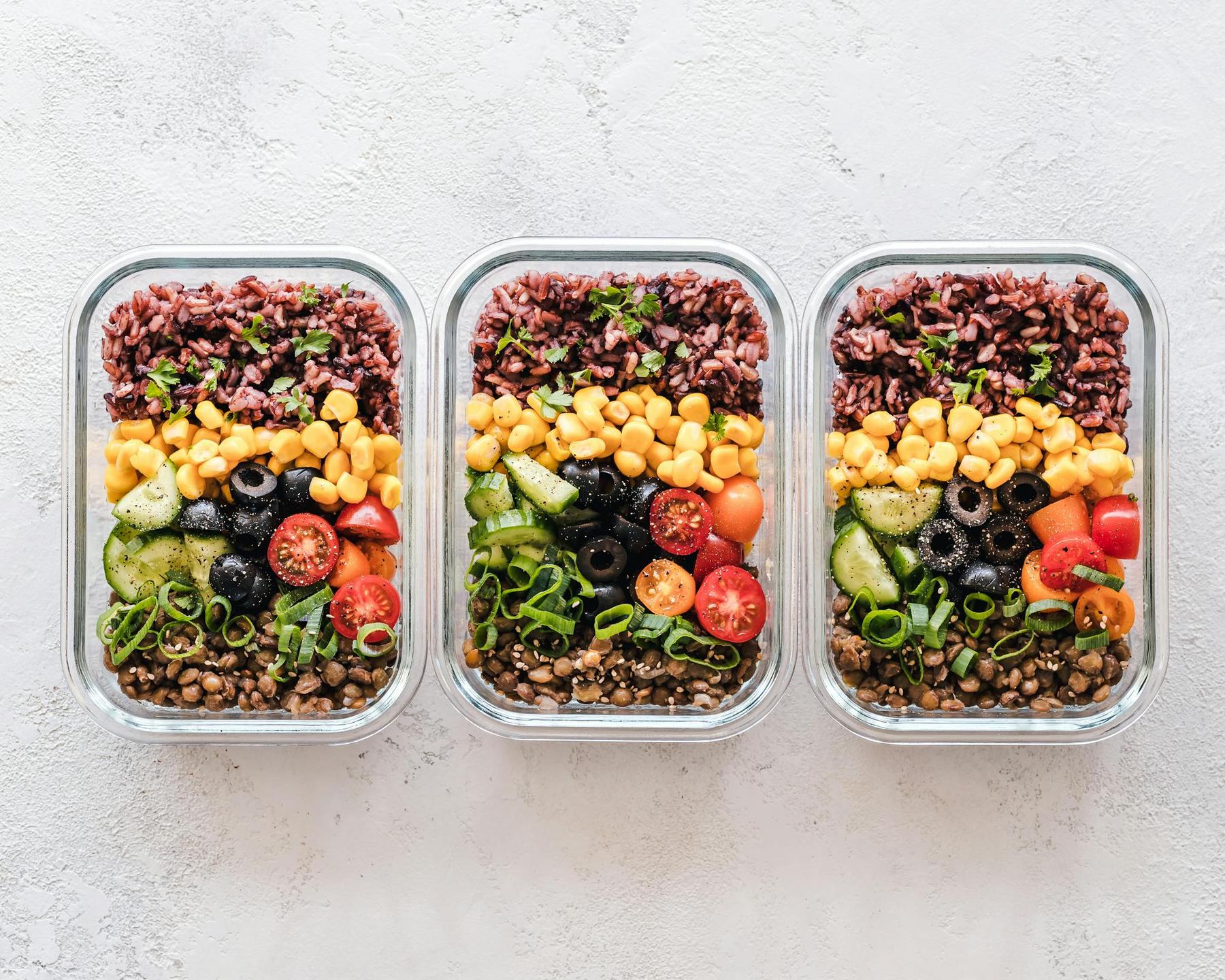Juggling school runs, work commitments, household tasks, and family responsibilities leaves many Australian parents with precious little time for self-care. When it comes to weight management, parents face a unique set of challenges that standard weight loss advice often fails to address. The reality of parental time constraints requires solutions that fit seamlessly into already-packed schedules while delivering meaningful results.
Research shows that nearly 67% of Australian parents report lack of time as the primary barrier to maintaining a healthy weight. Yet achieving and sustaining weight loss is possible even within the constraints of busy family life – when approached with evidence-based strategies specifically designed for parental realities.
This comprehensive guide explores practical, time-efficient methods for weight management tailored to busy parents, combining nutritional approaches, physical activity strategies, and the emerging role of telehealth in supporting sustainable weight loss journeys.
How Can Busy Parents Prioritise Nutrition Without Extra Time?
Nutritional choices form the foundation of effective weight management, but traditional approaches often demand significant time investments that parents simply don’t have. The key lies in implementing strategic nutritional habits that maximise impact without adding to your daily workload.
Protein and Fibre: Your Time-Saving Allies
Research consistently demonstrates that consuming 25-30g of protein per meal significantly reduces hunger cravings and supports metabolic health. For time-pressed parents, this translates to fewer snack interruptions and more stable energy levels throughout demanding days.
Practical implementation might include:
- Keeping pre-boiled eggs in the refrigerator for quick protein access
- Utilising quality meal replacement options for breakfast or lunch (which studies show can reduce unhealthy snacking by up to 53%)
- Incorporating protein powder into morning smoothies that the entire family can enjoy
Similarly, fibre-rich foods create lasting satiety while supporting digestive health – especially important for parents who may eat irregularly due to childcare demands.
Efficient Meal Preparation Strategies
The concept of “meal prep” often conjures images of spending entire Sundays in the kitchen – unrealistic for most parents. However, streamlined approaches can deliver similar benefits without the time investment:
- Batch-cook freezer-friendly staples during natural downtimes (while supervising homework or when children are otherwise engaged)
- Utilise 10-minute recipes focused on nutrient density rather than complexity
- Create digital shopping lists aligned with weekly meal plans to eliminate decision fatigue
Research indicates that parents who implement even modest meal preparation strategies report 37% fewer instances of unhealthy convenience food consumption – a significant factor in weight management success.
What Exercise Approaches Work Best for Time-Poor Parents?
The traditional recommendation of 45-60 minutes of dedicated exercise is often impossible within parental schedules. Fortunately, research now supports the efficacy of alternative approaches that deliver comparable benefits in significantly less time.
Micro-Workouts and Time-Efficient Movement
Studies show that three weekly 15-minute high-intensity interval training (HIIT) sessions can burn equivalent calories to traditional 45-minute steady-state cardio workouts. For parents, this represents a game-changing approach to physical activity that can fit within natural schedule gaps:
- During children’s screen time
- While dinner is in the oven
- Early morning before the household awakens
Resistance training, particularly using portable equipment like resistance bands, offers additional metabolic benefits while requiring minimal space and setup – ideal for home environments where dedicated exercise space is limited.
Family-Integrated Physical Activity
Rather than viewing family responsibilities as barriers to exercise, innovative approaches integrate physical activity into parental duties:
- Weekend family bushwalking excursions (which show 30% increased adherence compared to gym-only routines)
- Post-dinner dance parties or active games (burning 200-300 calories per hour)
- Park-based activities that allow parents to alternate supervision with movement intervals
This integration eliminates the need to “find time” for separate exercise sessions while modelling healthy behaviours for children – creating a positive feedback loop for whole-family wellness.
How Can Telehealth Support Parental Weight Loss Goals?
The emergence of comprehensive telehealth services represents a paradigm shift for busy parents seeking weight management support. These platforms effectively eliminate traditional barriers to healthcare access while providing evidence-based interventions tailored to parental realities.
Comparing Traditional vs. Telehealth Approaches for Parents
| Aspect | Traditional Weight Management | Telehealth Solutions | Parental Benefit |
|---|---|---|---|
| Appointment Timing | Business hours only | Evening/weekend availability | Eliminates childcare requirements |
| Consultation Location | Physical clinic | Mobile app/video | Accessible during school pickups |
| Care Coordination | Fragmented specialists | Integrated care teams | Comprehensive support without multiple appointments |
| Access to Expertise | Limited by geography | Australia-wide specialist network | Equal access regardless of location |
| Follow-up Support | Scheduled appointments only | Asynchronous check-ins | Support during high-risk moments |
| Treatment Delivery | Pharmacy visits | Home delivery | Eliminates additional errands |
The data clearly demonstrates telehealth’s advantages for parents, with research showing 89% treatment adherence compared to just 54% for in-clinic programs. This translates directly to improved outcomes, with telehealth patients achieving significantly better results than those using traditional weight management approaches.
Medical Approaches to Weight Management
For parents with BMI ≥27 facing biological barriers to weight loss, medical weight management through telehealth offers particular advantages. These comprehensive programs typically involve:
- Initial health assessments (often requiring just 90 seconds to complete)
- Consultation with registered medical professionals
- Personalised treatment plans
- Ongoing support from integrated healthcare teams
The evidence strongly supports this approach, with data showing patients achieving up to 20.2% weight reduction through telehealth medical weight management – approximately three times more effective than self-directed approaches for those with biological weight management challenges.
Which Habits Make the Biggest Difference in Parental Weight Management?
Beyond nutrition and exercise, certain foundational habits disproportionately impact weight management success for busy parents. These high-leverage practices deserve priority within limited available time.
Sleep Optimisation for Metabolic Health
Research consistently demonstrates that insufficient sleep disrupts hunger hormones leptin and ghrelin, leading to increased cravings and reduced metabolic efficiency. For parents, prioritising 7-9 hours of quality sleep shows remarkable benefits:
- 23% reduction in food cravings
- Improved stress regulation
- Enhanced recovery from physical activity
- More stable energy levels throughout demanding days
While parental sleep is often disrupted by family responsibilities, implementing even modest improvements (like consistent bedtimes and screen limitations) yields measurable metabolic benefits.
Stress Management Techniques
Elevated cortisol levels from chronic stress directly impact weight management through increased abdominal fat storage and heightened cravings. For parents, implementing brief but consistent stress management practices shows measurable physiological benefits:
- 10-minute daily mindfulness sessions reduce cortisol levels by approximately 18%
- Brief breathing exercises during natural transition periods (school drop-off, work breaks)
- Evening wind-down routines that signal the nervous system to shift from stress response
These practices require minimal time investment while offering compounding benefits for both weight management and overall parental wellbeing.
How Can Parents Track Progress Effectively?
Traditional weight loss metrics often create unnecessary stress for busy parents. More sustainable approaches focus on progress indicators that accommodate natural fluctuations while providing meaningful feedback:
- Weekly photo documentation rather than daily weighing (which can reflect water retention rather than fat loss)
- Clothing fit assessments (which better represent body composition changes)
- Energy level tracking (a key indicator of metabolic health)
- Strength and functional fitness improvements
Research indicates parents using these progress metrics maintain motivation significantly longer than those focused exclusively on scale weight – a crucial factor in long-term success.
The Integrated Approach to Parental Weight Management
The most effective weight management strategies for busy parents combine these elements into a cohesive system that works within real-world constraints. Rather than attempting to implement everything simultaneously, successful approaches typically involve:
- Initial focus on nutrition fundamentals (protein, fibre, meal planning)
- Gradual integration of time-efficient movement
- Implementation of key metabolic support habits (sleep, stress management)
- Professional guidance through accessible telehealth platforms
This progressive approach accommodates parental realities while delivering sustainable results – without requiring unrealistic time commitments or lifestyle overhauls.
Parents who implement these evidence-based strategies report not only personal health improvements but also positive influences on family-wide wellness behaviours. Research shows children of parents modelling these approaches demonstrate significantly healthier nutritional choices and activity patterns – creating intergenerational health benefits.
The modern Australian parent requires weight management solutions designed for their unique challenges. Through strategic nutrition approaches, time-efficient physical activity, telehealth support, and key habit optimisation, sustainable weight management is achievable even within the constraints of busy family life.
Skip the struggles. Our patients achieve <20.2% weight reduction with medical weight loss treatments delivered straight to their door. No clinics. No waiting. Just results. See if you’re eligible for our medical weight loss treatments – take our quiz.
How quickly can busy parents expect to see weight loss results?
Healthy, sustainable weight loss typically occurs at a rate of 0.5-1kg per week, though individual results vary based on starting point and biological factors. Parents implementing the strategies outlined in this guide generally report noticeable improvements in energy and clothing fit within 2-3 weeks, with measurable weight changes following a consistent pattern thereafter. Medical weight management approaches may accelerate this timeline for those with BMI ≥27 and biological barriers to weight loss.
Can parents succeed with weight loss without sacrificing family time?
Absolutely. The most sustainable approaches integrate health-promoting behaviours into existing family routines rather than competing with them. Family-based physical activities, meal preparation strategies that involve children, and modelling healthy relationships with food all support parental weight management while enhancing family wellbeing. Research indicates parents who frame weight management as family wellness rather than individual sacrifice maintain progress significantly longer.
How do telehealth weight management services work for parents?
Modern telehealth platforms eliminate traditional barriers by providing comprehensive support without clinic visits. Typically, the process begins with online health assessments, followed by virtual consultations with healthcare professionals. For appropriate candidates, personalised treatment plans are developed and medications delivered directly to your home. Ongoing support through secure messaging and scheduled follow-ups ensures continuity of care without requiring additional time commitments.
What options exist for parents who have tried traditional weight loss approaches without success?
Parents who have attempted multiple diet and exercise approaches without sustainable results may have underlying biological factors affecting weight management. For those with BMI ≥27, medical weight management through telehealth offers evidence-based interventions that address these biological barriers. These comprehensive programs combine medical expertise with nutritional guidance and behavioural support – providing a multifaceted approach to complex weight management challenges.
How important is dietary protein for parental weight loss?
Protein plays a crucial role in weight management for busy parents. Research shows consuming 25-30g protein per meal significantly reduces hunger, supports muscle maintenance during fat loss, requires more energy to digest than other macronutrients, and helps stabilise blood sugar levels. For time-pressed parents, prioritising protein represents one of the highest-leverage nutritional strategies for sustainable weight management results.



